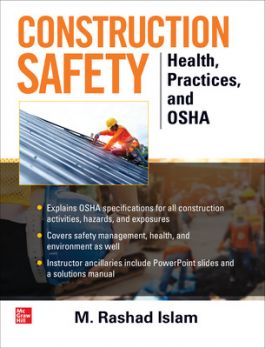ACLU, unions: Iowa OSHA failed to do its job, protect workers against COVID-19

The American Civil Liberties Union of Iowa and other groups filed a federal complaint against the state's Occupational Safety and Health Administration on November 13, 2020, saying regulators failed to protect workers during the COVID-19 pandemic.
Citing complaints filed by workers that led to no inspections at meatpacking plants where the coronavirus infected hundreds of workers, leading to some deaths, the organizations said that Iowa OSHA did not meet the minimum standards of workplace safety.
The complaint will ignite an investigation, during which the federal government could threaten to take over the state's regulation authority. More likely, experts say, the federal agency may create a list of stricter demands that state regulators will need to follow, reports the Des Moines Register.
"Iowa OSHA is not doing its job," ACLU of Iowa Communications Director Veronica Fowler said during a news conference. "It is not doing the fundamental job it was created to do, which is protect its workers."
Iowa OSHA Administrator Russell Perry said in an email to the Des Moines Register, "We would welcome the Federal OSHA investigation, which will address the complaint items. Iowa OSHA will fully cooperate with federal investigative authorities, and will respond to any findings and/or recommendations at the proper time."
Through Oct. 4, workers filed 148 complaints with Iowa OSHA that their offices or factories were unsafe from spread of COVID-19. Of those, according to the ACLU, five led to on-site inspections, while regulators closed out the rest.
The complaints led to one citation for a record-keeping error, the ACLU said.
Iowa is one 21 states that operate their own OSHAs to inspect private companies. But those agencies still receive half of their funding from the federal government and must create health and safety standards that are "as effective as" federal OSHA standards.
The complaint filed on November 13 alleges that the state has failed to uphold federal standards for six reasons:
- Not following its own procedures: According to the complaint, the state did not meet its own benchmarks because it did not inspect some worksites where employees credibly complained they were unsafe. In particular, the state did not visit some meatpacking plants and nursing homes where outbreaks occurred, the organizations said.
- "Inadequate" on-site inspections: In particular, the organizations criticize Iowa OSHA for failing to cite Tyson Foods after COVID-19 outbreaks occurred at plants in Waterloo and Columbus Junction, where a combined 1,500 workers got sick and at least six died. The organizations also criticize Iowa OSHA for allegedly not researching whether plastic barriers adequately separated workers after the plants used them as a solution to avoid spread of the virus.
- "Inadequate" enforcement policies: While federal OSHA requires staff to inspect any complaints in which the workers are in "imminent danger," the state requires inspectors to go to a site only when “a permanently disabling injury or illness has occurred.” The organizations contend that this standard is too lax.
- Difficulty for workers to file complaints: The organizations say that Iowa OSHA's website instructs workers to print out a form and mail it if they want to file a complaint. They say the website should provide workers with a link to the state's phone line or to a federal website, where they can submit complaints.
- Too few inspectors to perform the job: A plan approved by federal OSHA requires the state to maintain a staff of 13 safety compliance officers. According to the complaint, Iowa OSHA reports it has 10 officers. The organizations allege Iowa OSHA representatives have said they actually have only three officers.
- Failure to provide information toworkers who complain: The organizations say that some workers do not know about the outcome of their complaints unless they file an open records request with the agency. In some cases, they say, workers have to pay for the records in their cases.
To read more about the complaint, see the article in the Des Moines Register.
Looking for a reprint of this article?
From high-res PDFs to custom plaques, order your copy today!









